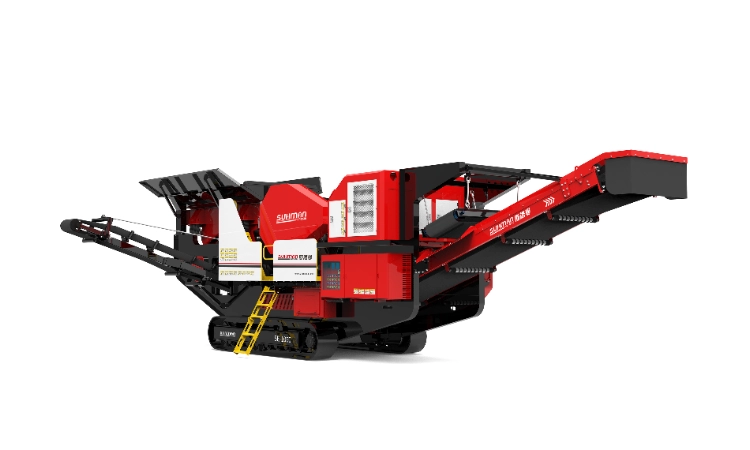In the field of construction and mining, crushers play a crucial role in processing raw materials, especially when dealing with hard rock. Among the most commonly used machines for this purpose are the Mobile Jaw Crusher and the Mobile Multi-Cylinder Cone Crusher. Both are designed to crush hard materials, but they operate in different ways and are suited for different types of jobs. This article will explore the key differences between these two crushers, comparing their functionality, applications, and efficiency to help you make an informed decision based on your specific needs.
Table of Contents
- Introduction to Mobile Crushers
- Mobile Jaw Crusher for Hard Rock
- Mobile Multi-Cylinder Cone Crusher
- Comparison of Mobile Jaw Crusher and Multi-Cylinder Cone Crusher
- Applications of Mobile Crushers
- Conclusion: Choosing the Right Crusher
Introduction to Mobile Crushers
Mobile crushers are versatile and efficient machines used in a variety of industries, from construction to mining. Their primary purpose is to reduce large rocks and stones into smaller, manageable sizes. Among the most popular mobile crushers are the Mobile Jaw Crusher and the Mobile Multi-Cylinder Cone Crusher. These machines are designed to handle tough materials, including hard rock, and are built for mobility and flexibility, making them ideal for on-site operations.
Mobile Jaw Crusher for Hard Rock
The Mobile Jaw Crusher is designed primarily for the crushing of hard rock and is known for its high capacity, ruggedness, and ease of maintenance. It operates using a jaw that compresses material between two surfaces, typically referred to as the “jaw plates.” This type of crusher is often used for primary crushing tasks and is highly effective at breaking down large boulders and other tough materials.
Some key features of the Mobile Jaw Crusher include:
- High crushing capacity for large volumes of material
- Simple structure, making it easier to maintain
- Ideal for primary crushing in mining and construction
- Effective for materials such as granite, limestone, and basalt
Mobile Jaw Crusher Performance Table
| Feature | Specification |
|---|---|
| Feed Size | Up to 1200mm |
| Output Size | 30-150mm |
| Capacity | 150-500 TPH |
| Power | 200-400 kW |
Mobile Multi-Cylinder Cone Crusher
The Mobile Multi-Cylinder Cone Crusher is a more advanced machine compared to the Mobile Jaw Crusher. It features a cone-shaped crushing chamber and operates by compressing the material between a rotating mantle and a fixed bowl liner. This type of crusher is often used for secondary and tertiary crushing stages and is highly efficient for producing finely crushed materials.
Key features of the Mobile Multi-Cylinder Cone Crusher include:
- Superior crushing performance with less wear and tear
- High reduction ratio and fine material output
- Best suited for secondary and tertiary crushing
- Effective for materials such as granite, marble, and quartz
Mobile Multi-Cylinder Cone Crusher Performance Table
| Feature | Specification |
|---|---|
| Feed Size | Up to 350mm |
| Output Size | 10-40mm |
| Capacity | 100-400 TPH |
| Power | 250-500 kW |
Comparison of Mobile Jaw Crusher and Multi-Cylinder Cone Crusher
While both crushers are designed for hard rock crushing, they have distinct differences that make each suited to particular tasks. Below is a comparison of their key characteristics:
| Feature | Mobile Jaw Crusher | Mobile Multi-Cylinder Cone Crusher |
|---|---|---|
| Primary Use | Primary crushing of large rocks | Secondary and tertiary crushing |
| Feed Size | Up to 1200mm | Up to 350mm |
| Output Size | 30-150mm | 10-40mm |
| Crushing Efficiency | High capacity, low reduction ratio | High reduction ratio, fine output |
| Applications | Primary crushing of tough materials | Secondary and fine crushing of hard materials |
Applications of Mobile Crushers
The Mobile Jaw Crusher is best suited for tasks where the primary goal is to break down large, tough materials. It is often used in mining, quarrying, and recycling operations where the focus is on reducing large boulders into smaller, manageable sizes. On the other hand, the Mobile Multi-Cylinder Cone Crusher excels in secondary and tertiary stages where finer output and high reduction ratios are needed. It is typically used for applications that require more precision, such as producing aggregates for the construction industry.
Conclusion: Choosing the Right Crusher
When deciding between the Mobile Jaw Crusher and the Mobile Multi-Cylinder Cone Crusher, it’s important to consider the type of material being processed, the required output size, and the stage of the crushing process. The Mobile Jaw Crusher is ideal for primary crushing tasks, especially when dealing with large, tough materials. The Mobile Multi-Cylinder Cone Crusher, on the other hand, is better suited for secondary and tertiary crushing, offering finer material outputs and higher efficiency. Both crushers have their place in the mining and construction industries, and choosing the right one will ensure optimal performance and cost-effectiveness in your operations.



